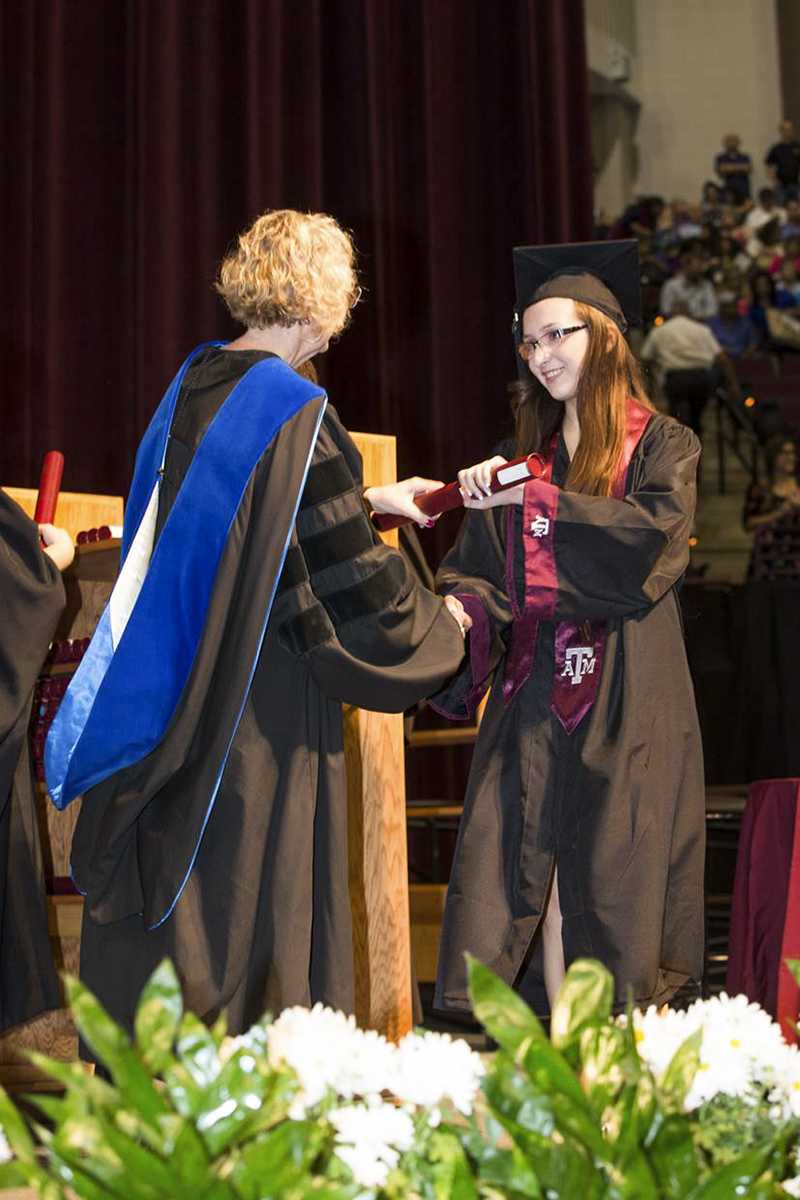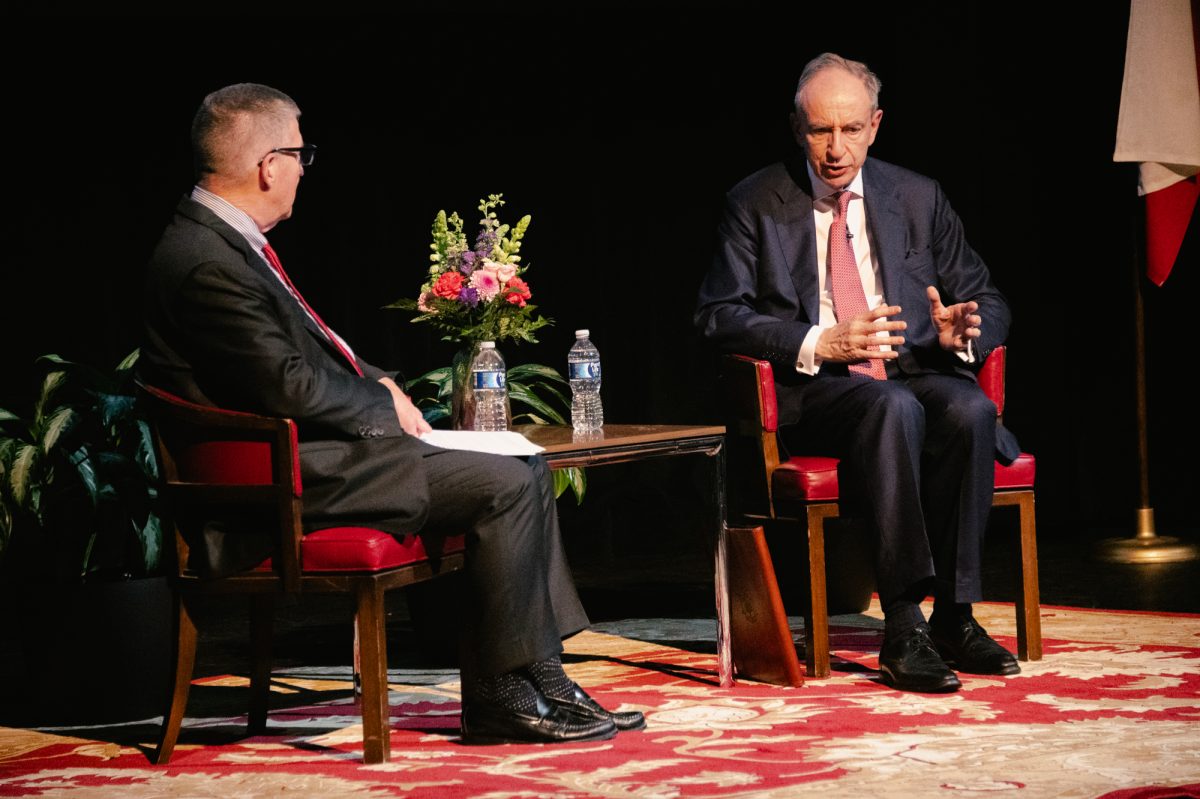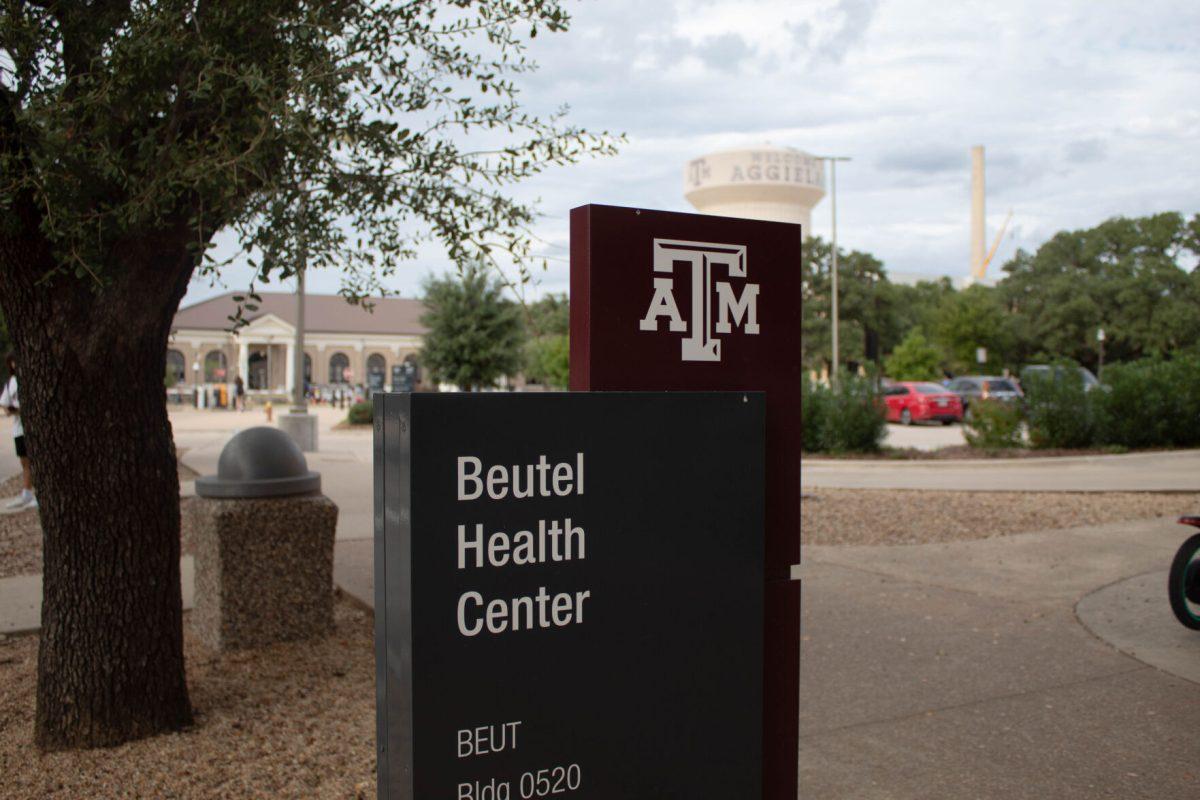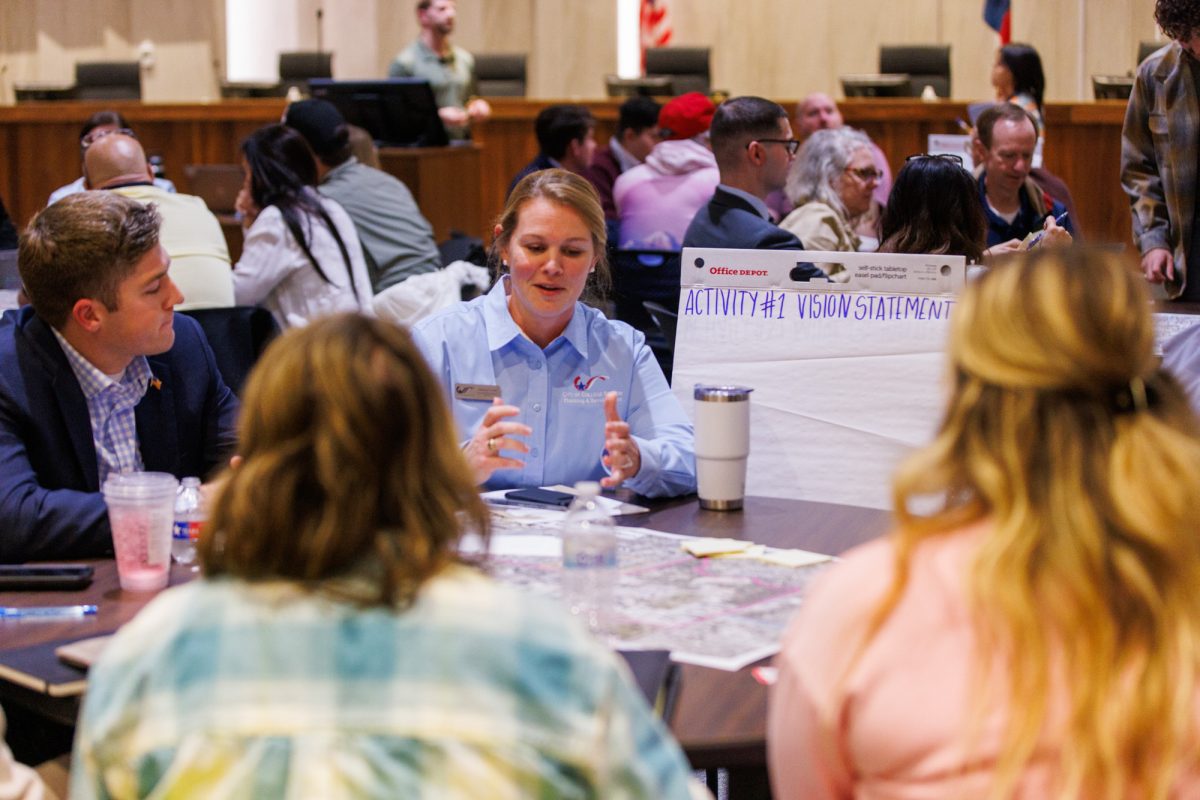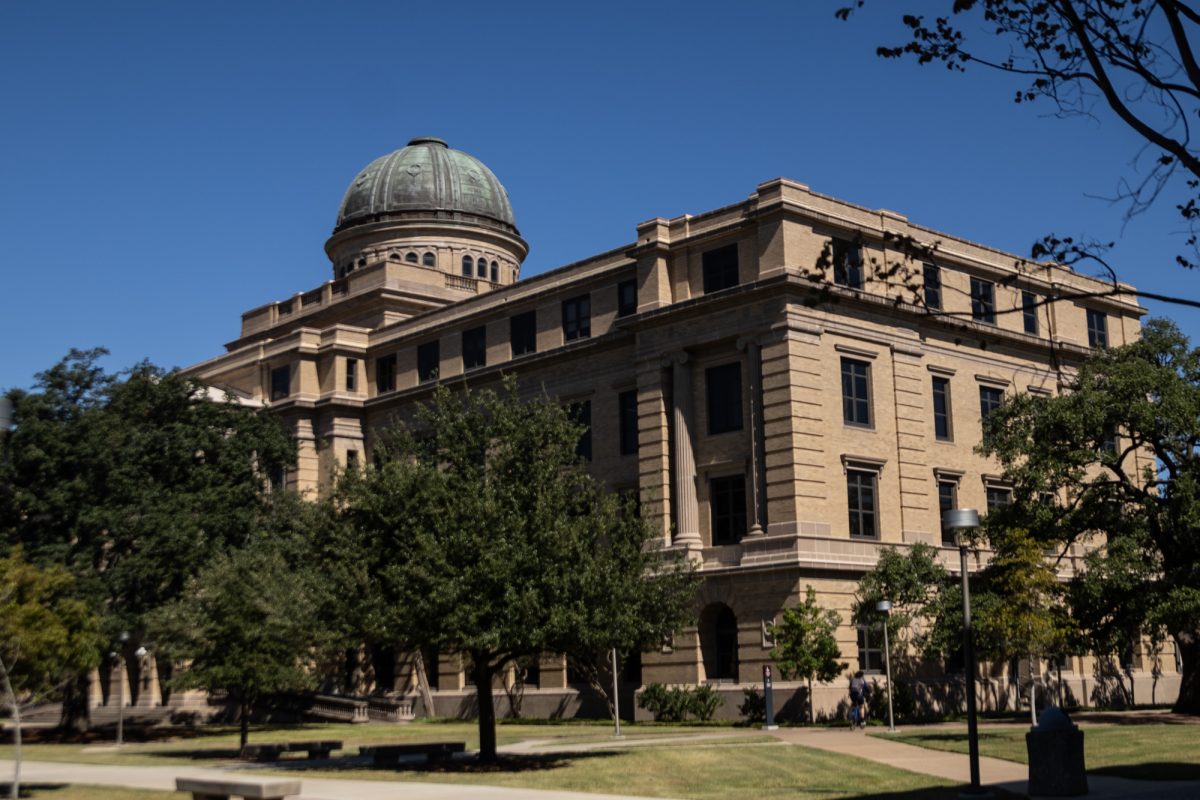The Battalion writer Claire Shepherd spoke with Noel Jett, who graduated from Texas A&M this spring at the age of 16. Jett talks about what life is like as a profoundly gifted child and why she is no exception to human struggles.
THE BATTALION: Was there anything significant that your friends, college friends or family did that really supported you throughout your college career?
JETT: The most support that I got was from my family. My immediate family, of course, financially supported which was great, but my extended family was supportive in the sense that they didn’t make a big deal of it [my college career]. It is just what I am doing. My friends back home were also supportive and encouraging.
THE BATTALION: What compels you to excel in college courses at a young age?
JETT: I have a natural desire to learn, but otherwise, it comes with hard work. It is probably a balance of genetics, good parenting and hard work.
THE BATTALION: You tried going to an alternative high school. Did you meet a lot of people who were similarly gifted?
JETT: That high school was sort of an enigma. I didn’t go there for very long, just one semester. It was designed to be a more advanced high school for people not necessarily taking early college but taking dual credit. It was for ambitious people, but when I went there it was the first semester of the first year that they had been around and there were only 100 people that they had let in as freshman.
It wasn’t all people who wanted to work really hard. It was a few people who wanted to work hard and a lot of people who didn’t. There were some people who came in determined and then gave up pretty much right after that. I’ve said this to a lot of people and only recently did someone say “Yeah that sounds like high school anywhere” — there was an aura of “done” and nobody really cared except for a handful of people, but those people cared to a point that their anxiety made me anxious. They were so intense because they had tiger parents and what not. They had to give their all, plus one for everything which was ridiculous and impossible to overcome. It was a really unique experience. I’m glad that it’s over but I’m also glad that it happened. I learned a lot of stuff from it. It’s a lot different now than when I went. All those freshmen that I was with are now seniors. I spoke at the high school recently and went back and gave a little talk and there was a much different dynamic than before. With 400 people now, they have a reputation now of being more hardcore and more determined people are around now. The intense madness lifted a little bit. The people there, when I went back recently, were really accepting and supportive.
THE BATTALION: Was A&M supportive of your age? Did the faculty or advisers offer you social support?
JETT: To prevent age discrimination against older people, the department — when they see your application — they don’t see your birth year. The school does, but apparently they couldn’t care any less. But during the application process when you’re trying to get it submitted, you meet people and talk about whether you want to go to that school or not. Those people knew and they were fun and exciting and supportive and they asked me questions, but they weren’t annoying questions. They said things like, “Oh wow that’s so cool! What’s it like for you?” instead of comments like, “Oh wow that’s so cool! I’m going to call my kid!” People usually say that they have a child around my age and that they’re going to go home and tell their child to be like me and I’m like, “Wow! That’s terrible. Why would you do that to your child? Would you say, ‘I just met a talented athlete, so work harder and be like them’?”
THE BATTALION: Did you make a lot of friends at A&M, and did they know about your age?
JETT: Most of the people I met here didn’t know my age. Several friends attended here and already knew. It really isn’t relevant. If we are in a club together and talking politics or movies, it doesn’t come up. I am thankful to know so many interesting and kind people here and blessed to call them friends. I have two or three really, really good friends that aren’t at A&M and and then I have a lot of people who know who I am and that I socialize with on campus. That’s something I realized when the first article came out is how many people shared it and commented on it that I knew or I was friends with on Facebook so I had met them at least once or twice. They were like, “Oh wow! This is so cool! I know this person!” or some of them would say, “I’m friends with this person!” So I knew a lot of people but I didn’t hang out with them often because of the workload and research but they were all really supportive people naturally anyways. After the article came out, I was surprised with how many people thought that it was great. I had a handful of people that questioned my decisions to not tell anyone, not necessarily in a rude way, but they pointed out that people had been supportive and I said, “Some people have been supportive but It was just one of those things where it might not have worked out as well if people had known from the beginning. You’d like to think that you would do the noble thing [and treat a younger student equally], but how can you know?”
At community college, more people knew because it was kind of obvious that I was younger because I couldn’t hide it as well and I looked distinctly younger. I think those people were less mature about it. It depends on the person. People are very unique and different and some of them responded really well and some of them took it really personally and get offended in a way so that was really weird. Namely, they felt bad about themselves because of who I was. I never quite got that and didn’t wish that for them. Which was why I didn’t really want to tell people at A&M. It was too stressful to never know how someone would react.
THE BATTALION: What kind of plans do you have for after you finish your Ph.D?
JETT: I’m still unsure of what I want to do exactly. My research interests are really broad, and I’ll have a lot of time while earning my Ph.D. to pick how I want to work. I don’t want to be a therapist — I’m not sure that I have the personality to be a therapist. I’m not incredible with children so I’m not sure how it will [work out]. It might be different with gifted children, since historically I like them better.
THE BATTALION: Is there anything else you want people to know?
JETT: If there’s one thing that I want the world to know about all this, I suppose it’s that I was reading the comments on [my story] and there were so many positive comments, but a few negative. One of the most popular that I saw that made me laugh hysterically was when someone said something like, “Oh wow that’s so amazing! Do you ever have a bad day when you’re that smart?” I think the same thing while driving through beautiful neighborhoods with these huge mansion houses sometimes, I think, “Wow, they must be happy all the time in a house that beautiful and with that much money.” That’s so stupid. Hearts get broken in beautiful houses. I have bad days, in a way just like everyone else, and in a unique way too. If you’re going to comment on my article, I’m going to read it. Please remember that I am human. Yes, I have bad days and I still have human struggles. I have no doubt, however, that this was the best path for me, I enjoyed the academic vitality of A&M, the incredible amount of opportunities I was able to take advantage of and the kind and fun people I met.




